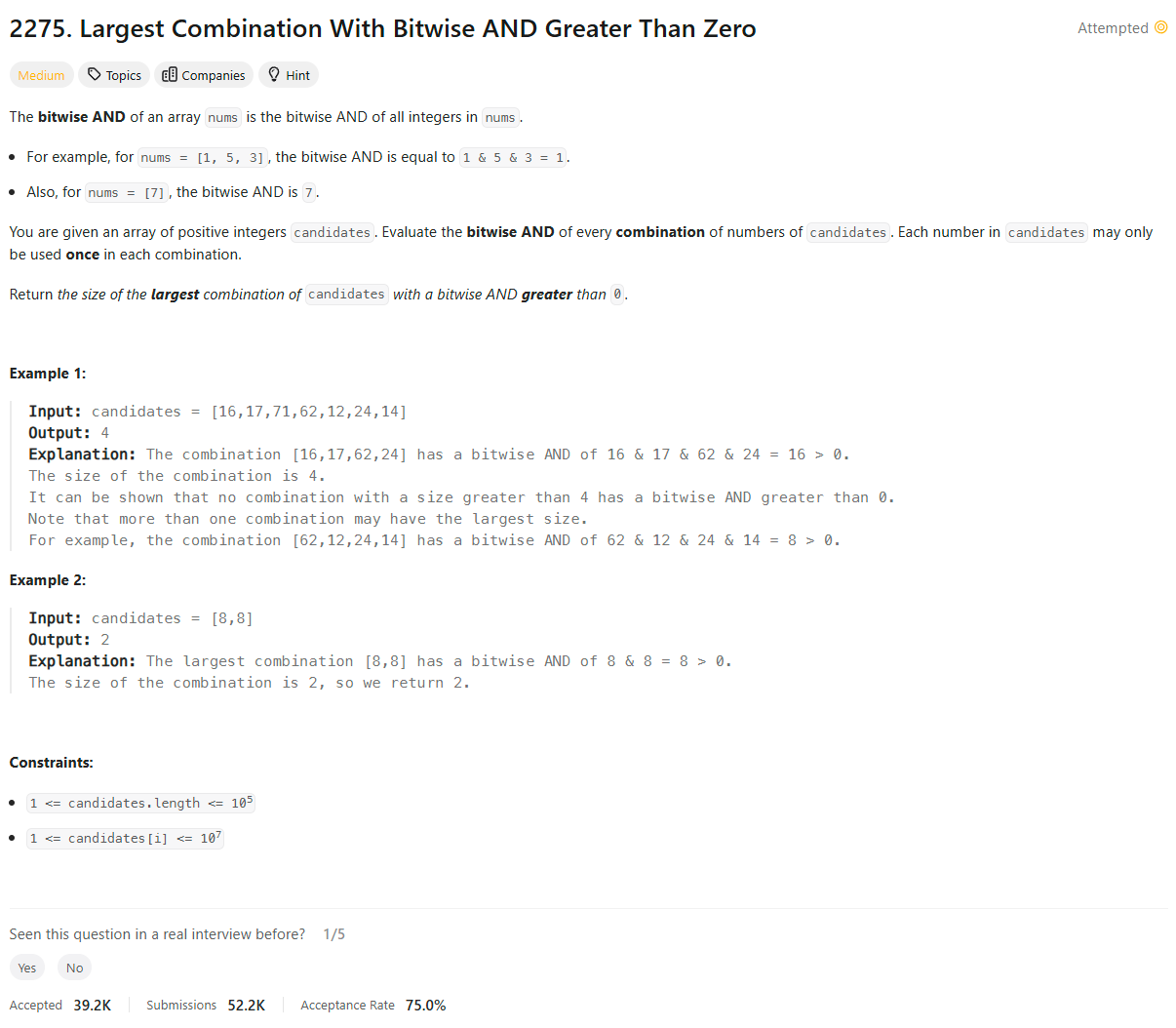Problem Statement

Brute Force [TLE]
class Solution:
def largestCombination(self, candidates: List[int]) -> int:
res = float('-inf')
N = len(candidates)
for i in range(N):
res = max(res, self.backtrack(i, candidates[i], candidates, len(candidates), 1))
return res
def backtrack(self, i, curr_bitwise, cand, n, size):
if i == n:
return size
ans = size
for j in range(i + 1, n):
if curr_bitwise & cand[j] > 0:
ans = max(ans, self.backtrack(j, curr_bitwise & cand[j], cand, n, size + 1))
return ans
Editorial
Approach 1: Using a Bit Count Array
class Solution:
def largestCombination(self, candidates: List[int]) -> int:
# Initialize a list to store the count of each bit position.
bit_count = [0] * 24
for i in range(24):
for num in candidates:
# Check if the i-th bit is set.
if (num & (1 << i)) != 0:
bit_count[i] += 1
return max(bit_count)
Approach 2: Direct Maximum Bit Count
class Solution:
def largestCombination(self, candidates):
max_count = 0 # Variable to track the maximum count of set bits.
for i in range(24):
count = 0 # Count of numbers with the i-th bit set.
for num in candidates:
if (num & (1 << i)) != 0: # Check if the i-th bit is set.
count += 1
max_count = max(max_count, count) # Update the maximum count.
return max_count
